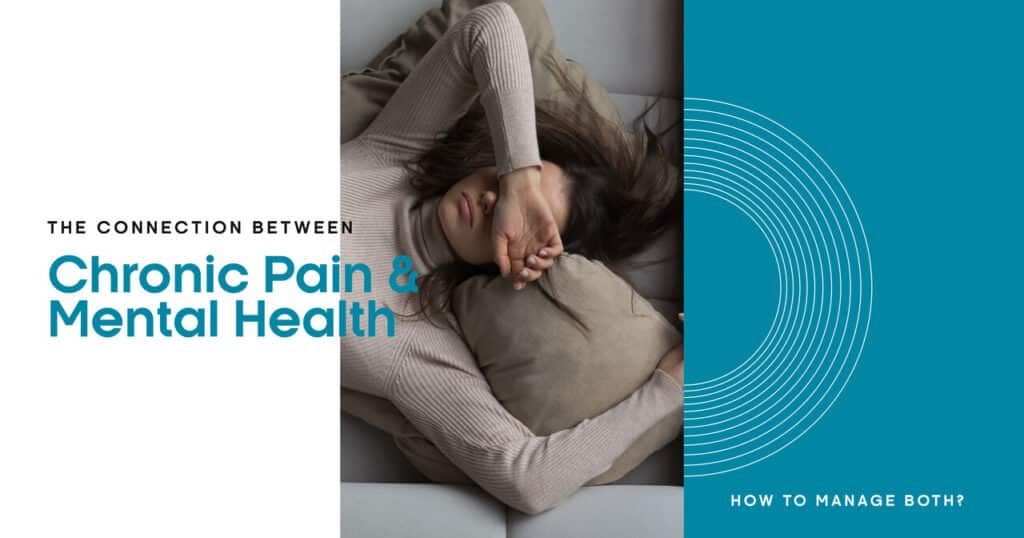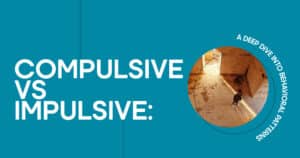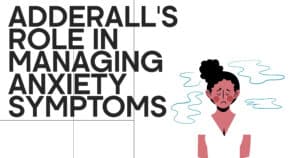Chronic pain and mental health often walk hand in hand, thus making complex health challenges for the sufferers. It is, therefore, critical to understand its connection as that is the starting point for effective management of someone or a person having these intertwined problems.
Key Takeaways:
- Connectedness, Chronic pain, and mental health do go hand in hand, and that is key to management.
- Treatment will encompass a multidisciplinary approach, therapies, and lifestyle intervention.
- Advocacy, access help, and advocacy for your needs with healthcare providers for holistic care.
In this article, we shall explore how chronic pain works to impact mental health, how mental health imparts its influence on pain perception, and offer actionable strategies to manage both conditions.
Understanding Chronic Pain and Its Impact on Mental Health
Chronic pain is defined as long-lasting pain that lasts for weeks, months, or even years. Unlike acute pain, chronic pain may be entirely apparent without any related obvious cause. Some of the common chronic pain conditions include
Causes of Fibromyalgia Widespread: musculoskeletal pain, fatigue, and tenderness cause fibromyalgia.
Arthritis: Involves inflammation of the joints, causing pain and stiffness.
Chronic Back Pain: This can result from various factors, including injury, degenerative disc disease, or herniated discs.
Migraine Headaches: Severe headaches can cause excruciating pain and sensitivity to light and sound.
Chronic pain can be very awkward and unbearable, both physiologically and psychologically. Continuous discomfort leads to an obstructive cycle that surpasses every phase of life, affecting work, relations, or daily activities.
The Psychological Effects of Chronic Pain
Chronic pain doesn’t just affect your body; it can take a toll on your mental health as well. Many individuals with chronic pain report experiencing:
- Anxiety: Constant discomfort and the unpredictability of pain can lead to heightened anxiety levels. Worrying about when the next flare-up will occur can create a state of chronic stress.
- Depression: The limitations imposed by chronic pain can lead to feelings of hopelessness and isolation. Many people may withdraw from social activities they once enjoyed, further exacerbating their mental health struggles.
- Frustration and Irritability: Dealing with ongoing pain can make anyone feel irritable. Everyday tasks may take longer and require more effort, leading to frustration that can affect relationships with loved ones.
Understanding these psychological effects is crucial for both individuals and their families. Recognizing that emotional struggles often accompany physical pain can foster compassion and patience during tough times.
California Mental Health
The Bidirectional Relationship Between Pain and Mental Health
How Pain Affects Mental Health
The relationship between chronic pain and mental health is bidirectional. When someone is in pain, it can trigger various psychological responses. Here’s how:
- Physiological Impact: Chronic pain activates the body’s stress response, releasing stress hormones like cortisol. Over time, this can lead to chronic stress, anxiety, and depression.
- Neurotransmitter Imbalance: Chronic pain can alter the balance of neurotransmitters in the brain, such as serotonin and dopamine, which are essential for regulating mood. This imbalance can worsen feelings of depression and anxiety.
- Sleep Disruption: Pain often interferes with sleep, leading to fatigue and further deteriorating mental health. Poor sleep can exacerbate both pain sensitivity and emotional well-being.
How Mental Health Affects Pain Perception
Just as pain can impact mental health, mental health issues can also affect how we perceive pain. Here are some ways this relationship works:
| Amplification of Pain | When someone is anxious or depressed, they may be more sensitive to pain. Negative emotions can amplify pain sensations, making even mild discomfort feel overwhelming. |
| Pain Catastrophizing | This term refers to an exaggerated negative reaction to pain. For example, if someone believes that a small headache signals a severe health issue, their anxiety can heighten the pain experience. |
| Coping Mechanisms | Individuals with poor mental health may struggle to employ effective coping strategies for pain management. Instead of seeking help or using relaxation techniques, they may resort to avoidance or denial. |
Recognizing this bidirectional relationship is essential for developing effective treatment plans that address both chronic pain and mental health.
Strategies for Managing Chronic Pain and Mental Health
Integrative Approaches to Treatment
Often, effectively managing chronic pain and mental health involves a holistic or multidisciplinary care approach that takes into account physical and emotional well-being. An important method is multidisciplinary care consultation with a team of healthcare professionals, pain specialists, mental health therapists, or physical therapists, who assess the situation and work together to develop an integrative treatment plan.
This cooperative approach ensures that everything about your health is integrated into your treatment plan. Physical therapy is another good option because it will improve mobility, strengthen muscles, and reduce the discomfort that would otherwise characterize the condition. A physical therapist can develop a suitable program that considers the patient’s specific condition and mental health.
Beyond that, complementary therapies like acupuncture, massage, or chiropractic care may provide additional relief for individuals’ overall wellness and comprehensive management of pain and mental health.
Cognitive Behavioral Therapy (CBT) for Pain Management
Thus, CBT is an effective treatment for the management of chronic pain as well as the rehabilitation of mental health in dealing with the interrelation of thoughts, feelings, and behavior.
In CBT, the patient learns to understand and overcome distressing maladaptive thinking related to their pain, such as catastrophic thinking, and replace it with a more balanced and realistic point of view.
This change of thought reduces the emotional, subjective meaning of pain. CBT also equips individuals with coping skills to better live with pain, such as relaxation techniques, mindfulness exercises, and behavioral activation, where a person is encouraged to do things that might hurt, though they are enjoyable.
Problem-solving skills are also enhanced in CBT; generally, strategies are provided that will help them cope with the difficulties of living with chronic pain and mental health problems. Often, such empowerment leads to greater resilience and overall improvement in well-being.
Mindfulness and Relaxation Techniques
Mindfulness and relaxation techniques can significantly benefit those dealing with chronic pain and mental health challenges. Here are a few practices to consider:
- Mindfulness Meditation: Mindfulness can make an individual’s awareness of pain nonjudgmental and prevent them from seeing it as an enemy that needs to be tolerated, thus reducing its emotional impact.
- Deep Breathing Exercises: Deep breathing is a positive relaxation technique that can help relieve stress. This exercise can be performed anywhere and proves quite helpful for managing acute episodes of pain.
- Flexibility and Strength: It can be achieved through yoga or gentle stretching. Yoga is repetitive in the long run, but it can make one feel more comfortable by easing physical discomfort and emotional stress.
California Mental Health
The Role of Support Systems
Building a Support Network
A strong support network is essential for anyone living with chronic pain and mental health challenges. Here’s how to build one:
- Connect with Family and Friends: Open up to trusted family members and friends about your struggles. Sharing your experiences can foster understanding and support.
- Join support groups: Participate in support groups, either in-person or online. Talking with others in similar situations is incredibly validating and will help with ideas.
- Seek Professional Help: Don’t hesitate to seek help from mental health professionals specializing in chronic pain management. They can offer tailored strategies and resources.
Communicating with Healthcare Providers
Effective communication with healthcare providers is critical to receiving the best care. Here are some tips for improving communication:
| Prepare for Appointments | Jot down your symptoms, concerns, and questions before your appointments. Being organized can help you communicate your needs more clearly. |
| Be Honest About Your Pain | Don’t hesitate to share how pain affects your daily life and mental health. Honesty helps providers understand your situation better and tailor their recommendations accordingly. |
| Advocate for Comprehensive Care | If your needs aren’t being met, advocate for a multidisciplinary approach. Don’t hesitate to express your desire for comprehensive care that addresses both chronic pain and mental health. |
Lifestyle Changes to Support Pain and Mental Health Management
Nutrition and Chronic Pain
- Diet: It plays a significant role in the management of chronic pain. Here are some tips on how to enjoy good eating that supports your health:
- Use anti-inflammatory foods. The best anti-inflammatory sources are omega-3 fatty acid-rich fatty fish, green leafy vegetables, berries, and nuts, which will curb inflammation and related pain.
- Keep Hydrated: Hydration is an essential factor for maintaining health. Moderate dehydration can exacerbate fatigue and headaches, so drink adequate daily water.
- Limit Processed Foods: Processed foods that contain sugars and bad fats can sometimes raise inflammation levels. Eat mainly whole, unprocessed foods.
Exercise and Physical Activity
Regular physical activity can improve both physical and mental health. Here are some tips to help you stay active:
| Start Slowly | If you’re new to exercise or experiencing chronic pain, start slowly. Gentle activities like walking or swimming can help improve mobility without excessive strain. |
| Listen to Your Body | Pay attention to your body’s signals. If you feel pain or discomfort, modify your activities accordingly. |
| Make It Enjoyable | Find activities you enjoy to make exercise feel less like a chore. Enjoyable activities like dancing, gardening, or yoga can keep you motivated. |
When to Seek Professional Help?
Recognizing Signs of Mental Health Decline
Recognizing when to seek professional help is well critical in the effective management of chronic pain and mental health challenges. One key indicator is increased feelings of hopelessness.
When despair or hopelessness becomes a part of life, that is a sign. If he cannot manage daily activity, that can also be a symptom.
When such a disorder, be it chronic pain or mental health problems, begins interfering with one’s routine activities, professional counseling can help get over those issues. An important other marker is substance abuse.
If you see that you have been relying on alcohol or drugs to help with pain or emotional distress, seek help right away because your physical and mental well-being can be instantly violated.
Benefits of Seeking Help
Do not be afraid to seek help when you need it. Here are the benefits of getting professional support:
- Tailored Plans: Mental health professionals can tailor pain and emotional well-being strategies.
- Availability of Resources: Seeking assistance would push one further ahead in the availability of additional resources, like support groups, informative material, and available treatment programs.
- Empowerment: A professional will empower you to take control of your health, foster a feeling of power, and sustain resilience.
California Mental Health
FAQ’s
- Chronic pain can indeed lead to anxiety and depression, how?
Yes, chronic pain can eventually lead to the development of anxiety and depression. The continued discomfort may accumulate feelings of frustration and despair; that itself may be a mental test.
- How can a patient handle chronic pain along with mental health?
An integrative approach, such as therapy (CBT) and mindfulness practices, exercise, and nutritional support, may effectively manage chronic pain and mental health.
- Are there any therapies that would work for chronic pain as well as for mental health disorders?
CBT is effective for chronic pain and also for psychological disorders. Among many of these, mindfulness-based therapies have been beneficial, along with numerous physical therapies. Hence, there is a relationship between diet, chronic pain, and mental health.
- When should I seek professional help for chronic pain and mental health?
Seek professional help when the hopelessness and other things start to intensify, and you feel you cannot manage your day-to-day activities, or worse when you are exhibiting symptoms of substance abuse.







